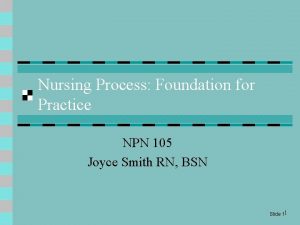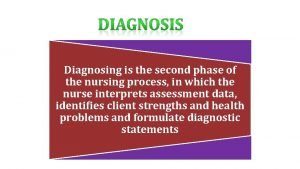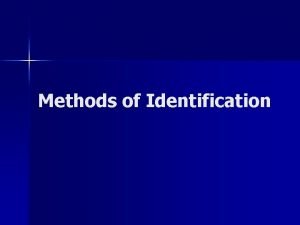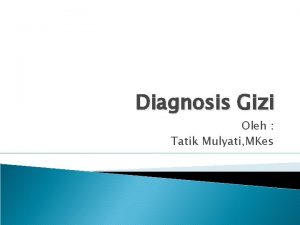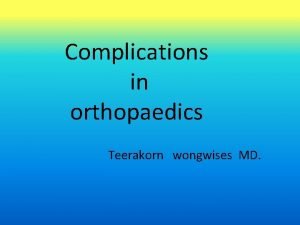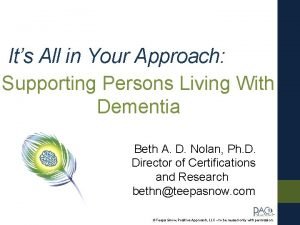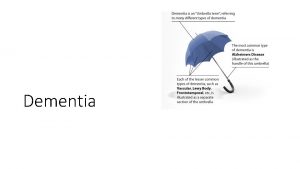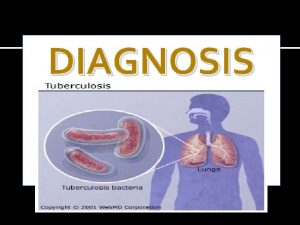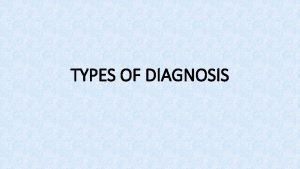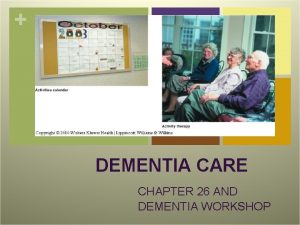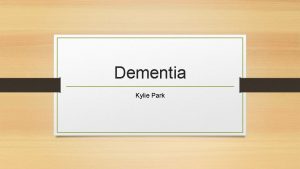Clinical Identification and Diagnosis of Dementia Experiencing Dementia








- Slides: 8

Clinical Identification and Diagnosis of Dementia

Experiencing Dementia Each person will experience dementia in an individual way but there will usually be: v A decline in memory, reasoning and communication skills v A gradual loss of the skills needed to carry out daily activities v Confusion l

Why Get a Diagnosis? v To rule out other conditions that may be treatable such as depression, chest and urine infections, severe constipation, brain tumours and vitamin deficiencies. v To rule out other causes of confusion. v To access advice, support and information.

Step 1: assessment by a GP l Analysis of background information l Physical examinations and tests l Mental tests

Step 2: referral to a specialist l Neurologists l Specialists in medicine for older people l General adult psychiatrists l Old age psychiatrists

Step 3: assessment l l Analysis of background information Physical examinations and tests Behaviour assessment Scans l l l CT or CAT (computerised axial tomography) MRI (magnetic resonance imaging) SPECT (single photon emission computerised tomography)

Step 4: explaining the diagnosis l l l Doctors may differ in their views to give someone a diagnosis of dementia. Most doctors will inform those close to the person of the diagnosis of dementia or possible dementia Sometimes the relatives will decide whether to tell the person the diagnosis

Step 5: ongoing assessment l l Patients will be regularly assessed for changes and to discuss any problems Patients will be referred to a specialist Patients general health still needs to be monitored Other issues to consider are l l A persons situation Where they live Any existing medical conditions Social circumstances

